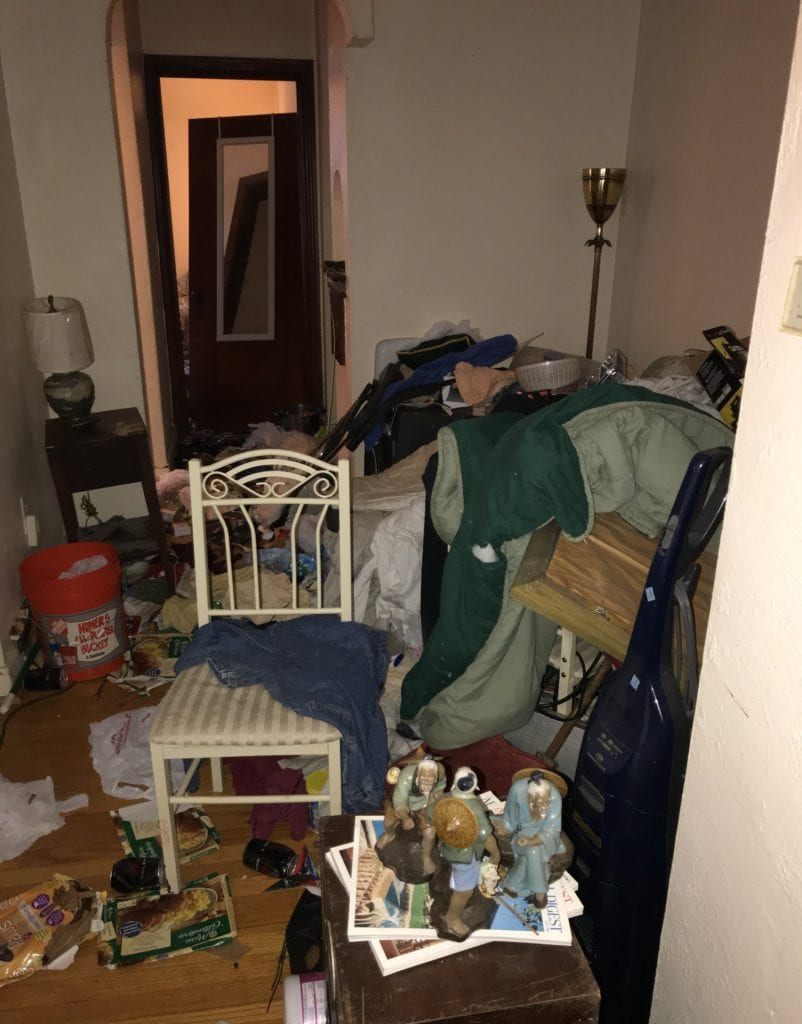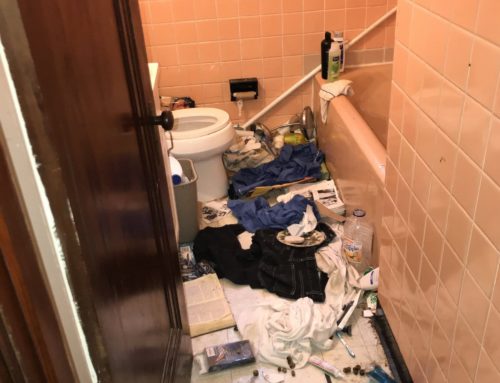Do you have a friend or family member whose home is cluttered beyond normal disorganization? Do they save items that seem to have no value or function? Do they get upset or angry if you try to clean up or suggest they do? Your loved one probably is suffering from Hoarding Disorder.
Understanding Hoarding Disorder
As an outsider, you may look at a hoarder’s home with disdain. If you live in the home as well, it’s a source of embarrassment. You and the hoarder probably don’t have many visitors because of the problem. You may worry that the environment is hazardous and puts all occupants at risk of falls, accidents, and disease. After all, what is lurking beneath all the clutter?
According to the Anxiety and Depression Association of America, “Hoarding is the persistent difficulty discarding or parting with possessions, regardless of their actual value. The behavior usually has deleterious effects—emotional, physical, social, financial, and even legal—for a hoarder and family members.”
Symptoms of Hoarding Disorder
Hoarders accumulate possessions that they believe have value, whether or not they are worth anything in actuality. They develop an attachment to objects and experience extreme anxiety in parting with them. The disorder is often the result of other issues, like depression or obsessive-compulsive disorder. Some typical symptoms of a hoarder include:
- Saving items of no apparent value
- Extreme duress if faced with discarding any possessions
- Accumulating items to the point where the premises and furnishings cannot be used as intended, for example, stacks of papers on chairs and tables
- Disorganization and misplacing important items or documents
- Anger or conflict with anyone attempting to clean up the house
What Is the Solution for Hoarders?
Maybe you’ve tried offering to clean up the house yourself or hire a maid. Perhaps the hoarder has even relented and allowed it at some point. Most often, however, getting rid of their “collections” puts them over the edge and they become extremely anxious and upset. They have great difficulty parting with items they believe have value to them. These reactions are typical of the disorder.
Cleaning up the house may only be a temporary solution anyway. If the hoarder doesn’t receive therapeutic help, the problem will just continue. So, how can you help? There are several steps you can take to support your loved one and get them the help they deserve and need. Here are some DOs and DON’Ts to consider.
- DON’T be an enabler. Don’t accommodate the hoarder by making it easier for them. Stop buying them items to add to the clutter or taking them shopping to buy more of the same.
- DON’T clean up after them. This just masks the problem and delays them getting help.
- DON’T clean up or throw away items without their knowledge or approval. This can exacerbate their anxiety. It can also cause conflict and lessen their trust in you.
- DON’T expect immediate success. It’s taken a while to accumulate the clutter and will probably take a while to get rid of. If the hoard seeks professional help, the cleanup process and behaviors that triggered the problem may happen gradually.
- DO support and encourage them. Don’t make rash judgments about their “behavior”. Communicate with them without criticizing. Discuss ways to make the space safer.
- DO suggest ways to help. Talk about seeking professional help for the mental and emotional problems causing the disorder. Stress how the treatments will make positive changes in their lives. Help them find appropriate resources.
- DO some research to learn more about hoarding disorder. It will help you understand and empathize with the hoarder. Learning what triggers their anxiety and actions can help you better deal with their situation.
- DO listen to them without judgment. This will help you gain their trust so you can be more influential in remedying their situation. Understand that their actions are due to their illness, not lack of good hygiene or laziness.
- DO assist them in the cleanup process. After or during professional treatment, the hoarder may become ready to clean up but it’s overwhelming. It may be too much or even too risky for you to do yourself. Consider hiring a professional, like PureOne Services St. Louis.
- DO expect setbacks. Hoarding is caused by mental and emotional issues. Even with professional treatment, hoarders may slide into old behaviors. Keep supporting them throughout.
We Are the Hoarding Cleanup Experts
At PureOne Services St. Louis, we have many years of experience and training in cleaning up hoarding situations. We will work closely with you and your loved one to sift through the clutter and decide the disposition of items. We will transport the items to the proper location once these decisions are made.
We’re certainly not medical experts, but we’ve worked in many hoarding situations and recognize the need for patience and discretion. To maximize their privacy, we arrive to the home in plain vehicles, so neighbors aren’t aware of our mission.
Let us help you and your loved one return to a more normal and safer environment. When they are ready to clean up, give us a call.

